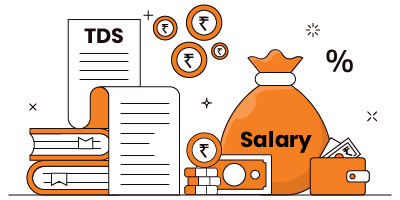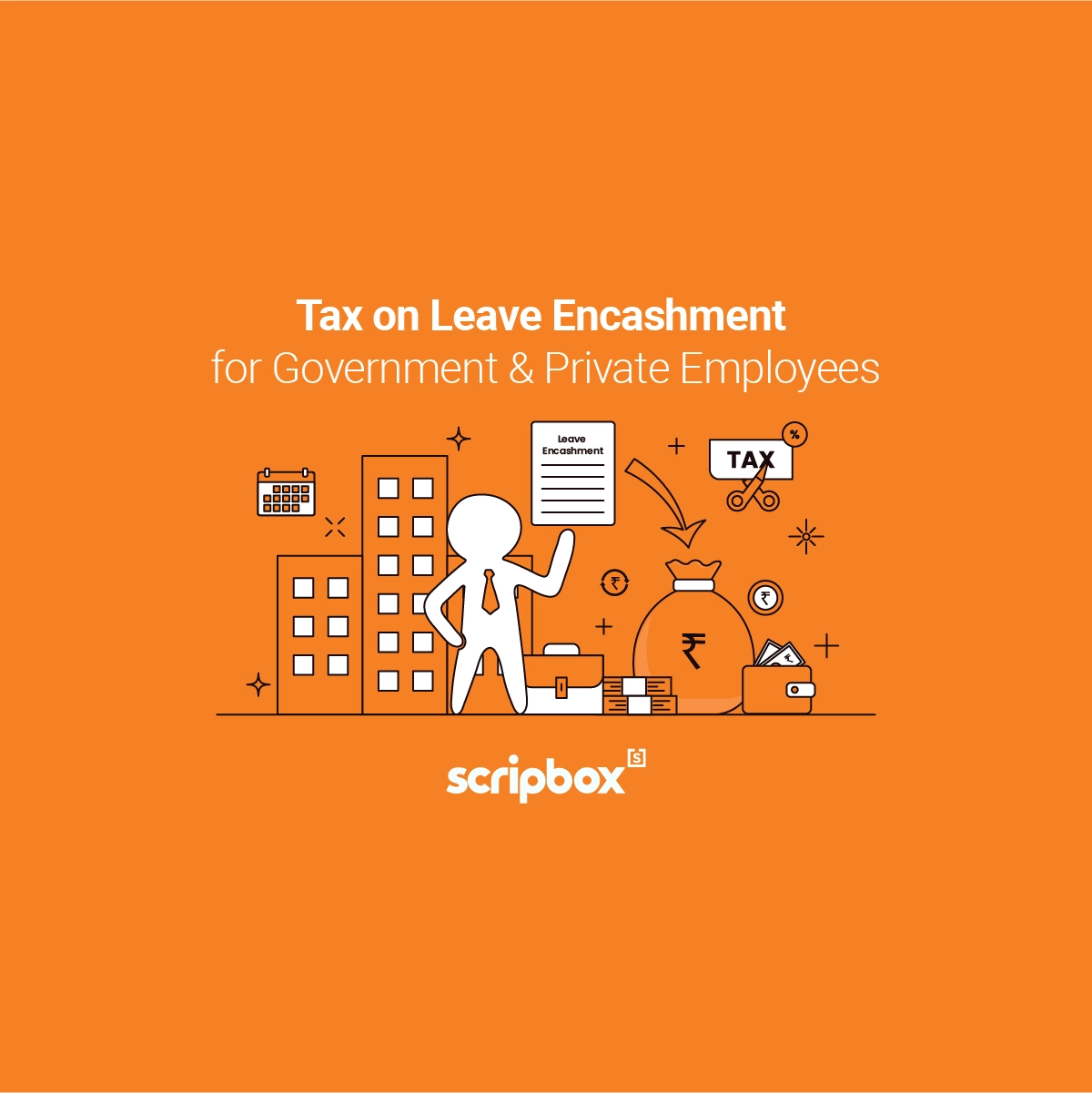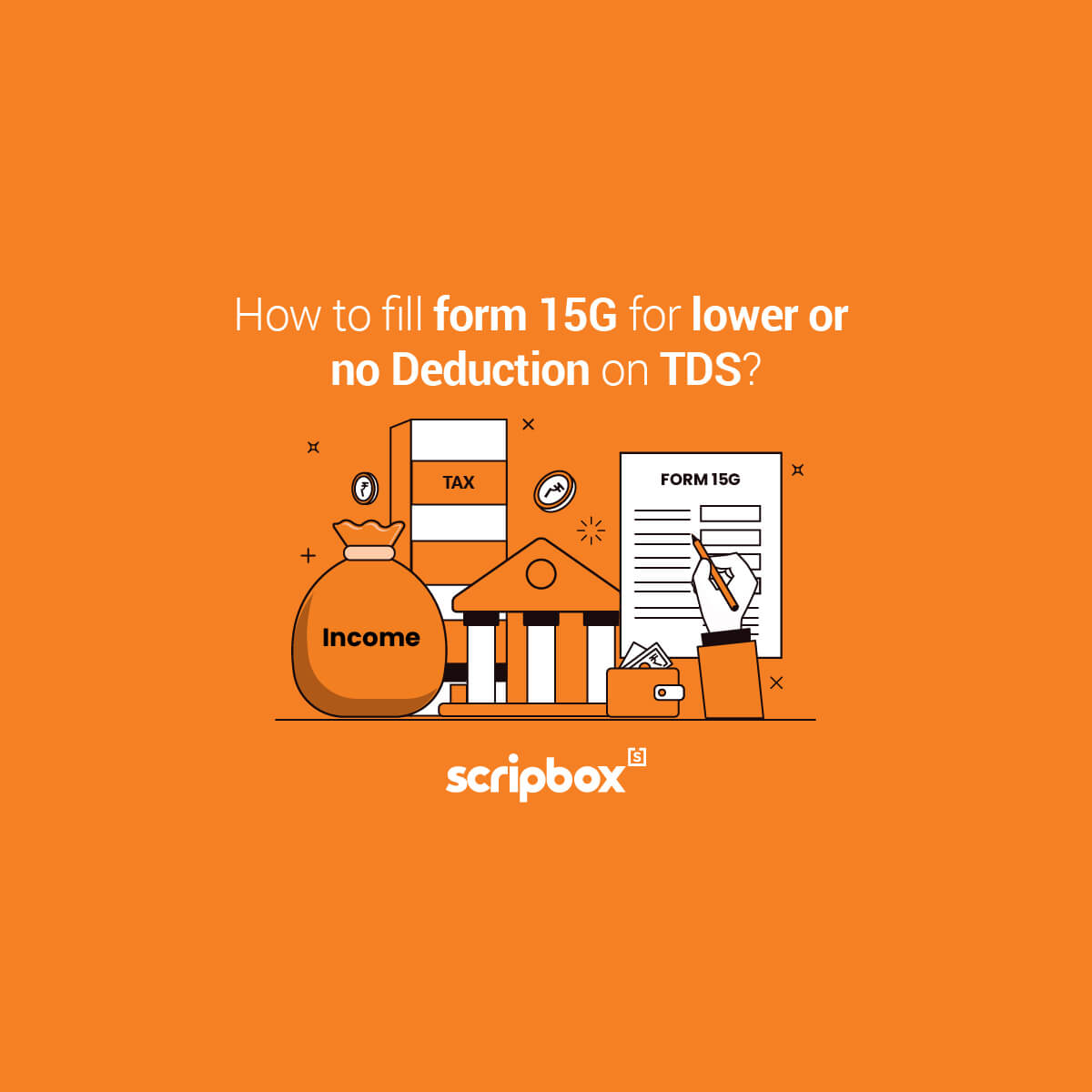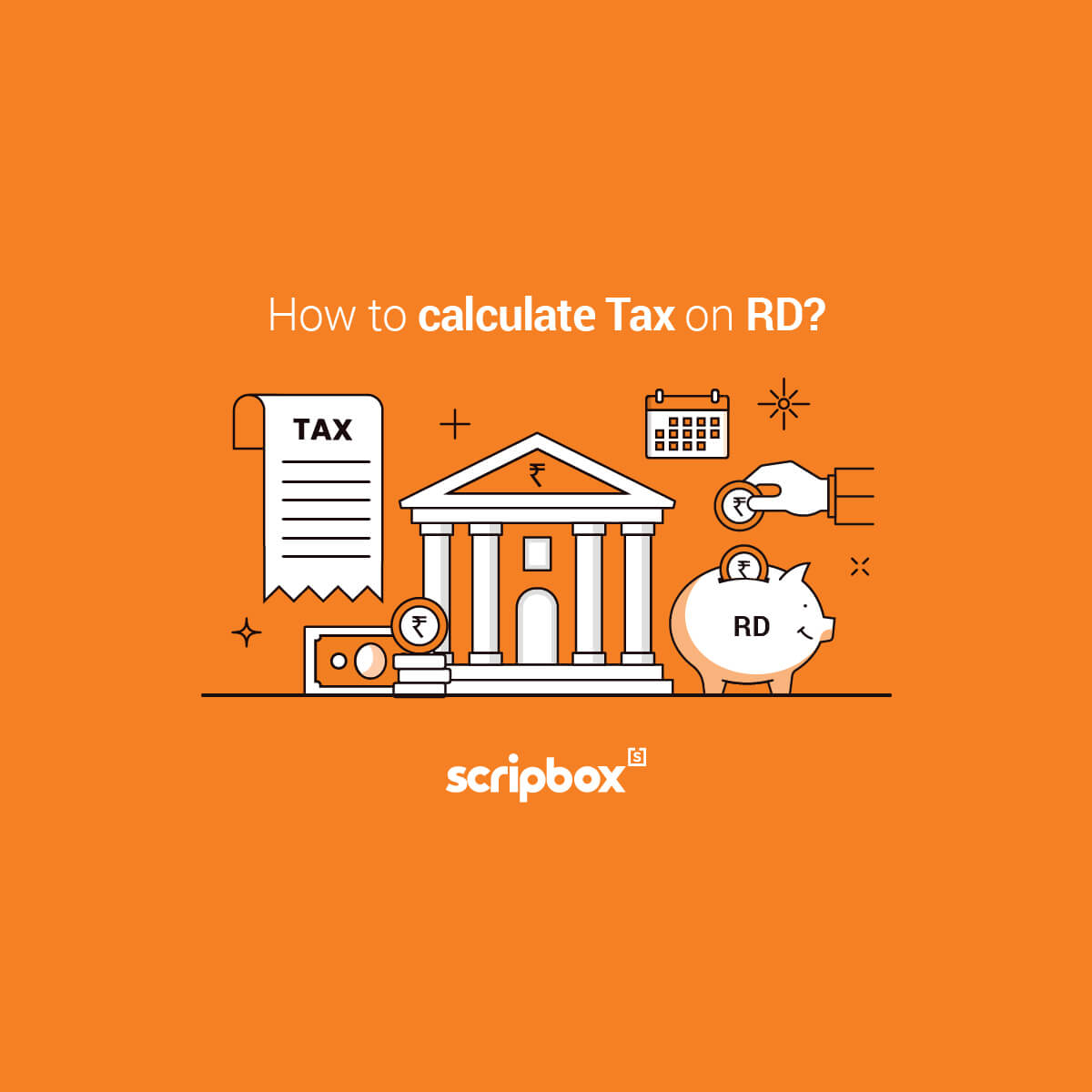Section 192 of the Income Tax Act, 1961 provides for TDS on salary income earned by an employee and paid by an employer. The employer deducts tax deducted at source while paying or crediting the salary income to the employer. While the employee can claim this TDS while filing his/ her income tax return and treat TDS as an advance tax. There are a couple of doubts that many salaried employees have while dealing with their income tax compliances. In this article, we have covered all about how to calculate TDS on salary, who deducts and how can you save TDS.
What is TDS on Salary Under Section 192?
Section 192 mandates that every employer must deduct TDS from the salary the employer pays to its employees. The employer needs to deduct TDS on an estimated income of the employee at the time of making the payment of salary. Since the TDS is deducted from the estimated net taxable income of the employee, you must provide the details of your income, deductions, and investment to your employer. Usually, the employers ask for such details during the beginning of the financial year or at the time of joining whichever is earlier.
Check out TDS on Commission
Who is responsible for deducting TDS on Salary?
Every employer who is responsible for paying the salary income to an employee is liable to deduct TDS. The primary trigger for section 192 is that there must exist an employer and employee relationship between the payer and the receiver. The number of employees does not affect the applicability of section 192. Moreover, the category of an employer is irrelevant for the purpose of TDS on salary. An employer includes:
- Public Limited Company
- Private Limited Company
- Hindu Undivided Family HUF
- Partner Firm including a Limited Liability Partnership LLP
- Association or Person AOP, Body of Individuals BOI
- Trust, charitable or otherwise
- Co-Operative Society
- Individual
- Any other organization by whatever name called
Rate of TDS on Salary under section 192
Section 192 provides for deduction of income tax on the amount payable at the average rate of income tax i.e. the income tax slab rate. The average rate of income tax must be computed on the basis of the slab rate applicable for the financial year in which the payment is made. The average rate must be applied to the estimated income of the employee for the financial year.
The employer needs to calculate the estimated income of the employee and income tax on such income at the applicable slab rate. The total income tax for the financial year must be then divided by 12 months or the remaining months of the year. Now the employer will deduct this tax as TDS every month from the salary.
The employer can increase or decrease the TDS amount to adjust any excess or deficient deduction of TDS during the financial year. If the employee fails to provide his/ her PAN to the employer then the employer can deduct TDS at a rate of 20%.
When is TDS Deducted on Salary?
Every employer responsible for paying the salary income to its employees must deduct TDS at the time of making payment to such an employee. Section 192 provided for deduction at the time of making a payment and not at the time of accrual of salary. The employer must deduct TDS monthly including any advance payment or arrears of salary. Furthermore, TDS is applicable only if the salary exceeds the basic exemption limit applicable to the employee. If after considering all the deductions and allowances the total income is below the slab rate then TDS is not applicable.
The basic exemption limit or slab rate applicable for the financial year 2023-24 and assessment year 2024-25 is as follows
| Category of Employee | Basic Exemption Limit (Rs.) |
| Individual (below 65 years of age) | 2,50,000 |
| Senior Citizen (Above 65 years of age but below 80 years of age) | 3,00,000 |
| Super Senior Citizen (Above 80 years of age) | 5,00,000 |
Due date to deposit TDS on salary
The employer must deposit TDS to the credit of the Central Government on the 7th day of the following month. So TDS deducted for the month of February must be deposited by 7th March to the credit of the Central Government. However, TDS deducted for the month of March can be submitted on or before 30th April i.e. following month.
The employer must file a TDS return as well. This way the employer can ensure that details are uploaded and reflected in the Form 26AS of the employee.
How to check TDS deducted on Salary?
- Every employer who is deducting TDS must mandatorily submit TDS return quarterly stating the details of TDS deduction like PAN, amount, name, etc.
- On submission of the TDS return, the details of such TDS deduction will reflect in the Form 26AS of the employee. To know the amount of tax deducted and deposited by your employer you can view Form 26AS of the relevant financial year. To know more on how to view and download Form 26AS you can refer to our guide.
- Your employer will also provide your TDS certificate in Form 16 every financial year. Form 16 contains a complete breakdown of salary income, allowances, deductions, investments, and TDS deduction. The employer will provide Form 16 on or before the 31st of May of the following financial year.
- While filing the income tax return you must consider Form 26AS and Form 16 to declare the salary income and TDS deduction.
TDS on Salary received from more than one employer
- If you are in employment with more than 1 employer during the financial year then you need to choose one employer who will be responsible for deducting TDS. You need to provide the details of your salary income received or receivable from other employers in Form 12B. The chosen employer will be responsible for computing the total income and deduct TDS.
- If you have resigned from one employer and joined another employer then you must provide details of salary received from the previous employer to the existing employer. The new employer will be responsible for calculating the total salary including the salary received from the previous employer. On this total salary, the existing or new employer will deduct TDS.
- In case you do not provide the details of salary received from the previous employer to the new or existing employer you may have to pay tax and interest. When you don’t provide complete details of income the employer will deduct taxes assuming you have received salary only from that employer. The previous and new employer will deduct taxes by allowing you the basic exemption limit. Since both will prove you slab benefit there will be a lower-income and thereof lower deduction of TDS.
TDS on perquisites/ non-monetary benefit
Often the employers provide perquisites in the form of non-monetary benefits to their employees. These perquisites are in the form of rent-free accommodation, car for travel, free or concessional education to employee’s children, free house help, etc. These perquisites form a part of the salary income and hence they are taxable in the hands of the employee. Now an employee can either pay the tax or let the employee the tax.
- If the employee pays tax on such perquisites then the employer will have to deduct TDS.
- In case the employer chooses to pay tax on such perquisites then the employer cannot deduct TDS. Here the employee will pay such tax from his/ her own pocket. The calculation of tax will be the same as in the case of TDS deduction from salary. Moreover, the employer needs to pay tax at the same time when TDS was due to be deducted and deposited.
Illustration on the calculation of tax on perquisite
If the employer chooses to pay tax on perquisite then you must calculate tax using the following method. The below example will help you understand better.
Mr. Arun receives an annual salary of Rs 7,00,000 from ABC Limited. The perquisites account for Rs 1,00,000.
| Particulars | Amount (Rs) |
| Salary | Rs 7,00,000 |
| Tax on Salary (Old Regime) (Including Cess) | Rs 54,600 |
| Average Tax Rate (Tax / Total Income) | 7.80% Rs 54,600/ Rs 7,00,000) |
| Tax Payable on Perquisite | Rs 7,800 (Rs 1,00,000 * 7.80%) |
| Tax To Be Paid Every Month | Rs 650 (Rs 7,800 / 12) |
How to calculate TDS on Salary under section 192?
- Firstly gather the documents necessary to calculate total salary income. To know a breakup of your salary you can refer to your offer letter or Form 16. Gather the documents relating to your investments and expenses.
- Calculate your gross salary i.e. basic pay and dearness allowance for the entire year
- Calculate the total amount of allowances receivable during the year
- To claim exemption available under section 10 calculate the exemption amount against each allowance receivable
- Reduce your gross salary including allowances i.e. gross salary minus exemptions under section 10 will be income taxable as salary
- Add other income to the salary income and calculate the total taxable income for the financial year
- Calculate the deduction available under various sections against investments and expenses like section 80C, section 80E, section 80D, section 80G, section 24, etc.
- Calculate the net taxable income. The total taxable income will be gross total income minus deductions.
- Select the applicable income tax slab and calculate the income tax payable.
- Now, calculate the average tax rate. The average tax rate will be the total tax paid divided by the total taxable income.
- The monthly TDS amount will be salary multiplied by the average tax rate.
Explore Old vs New Tax Regime
How to save TDS on salary?
To save TDS on salary income you must plan your taxes during the beginning of the financial year. You must always ensure that you provide the details of other income, deductions, and exemptions along with supporting documents to your employer.
Understand the structure of your Salary
The following are the salary and TDS calculation:
- Basic Pay and Dearness Allowance
- Special and Other Allowances
- Allowances against which you can claim an exemption in part or full
- Deductions from salary income under Income Tax Act like section 80C
- Tax Relief and Tax Rebate
Claim Exemption Against Allowances
- House Rent Allowance: Claim the deduction against the HRA you will receive as a part of your salary. In case HRA is not a part of your salary then you can claim the rent payable under section 80GG
- Standard Deduction: You can claim a standard deduction of Rs 50,000 against the travel allowance and medical reimbursement. You don’t have to submit any proof to claim the standard deduction.
- Leave Travel Allowance: You can claim an exemption of LTA by submitting proof of travel to your employer. The exemption is limited to the actual amount of spend on travel by you and your family.
- Meal Allowance or Food Coupons: An amount of Rs 50 per meal per day is exempt. For a month of 25 working days, you can claim an exemption of Rs 2500 per month (Rs 50 * 25 days) for lunch and dinner.
Deduction Against Taxes and Contributions
- Profession Tax: Your employer will deduct a professional tax of Rs 200 per month from your salary. You can claim a total of Rs 2400 for the financial year. P.tax contribution differs from state and you can claim the entire amount.
- PF Contribution: Ensure you claim a deduction for the PF contribution deducted from your salary. This deduction is a part of the Section 80C limit of Rs 1,50,000.
Tax Deductions
- Section 80C: You can claim deduction under section up to Rs 1,50,000 against investments and expenses made during the financial year. Investments such as ELSS, SSY, tax-saving FD, PPF, NSC, NPS, tuition fees, etc.
- Section 80D: Medical insurance premium for medical qualify for a deduction up to Rs 25000 for self, spouse, and dependent children.
- Section 80CCD(1B): You can claim additional Rs 50,000 against a contribution to the national pension scheme.
- Any contribution to a charitable organization qualifies for a deduction under section 80G. The eligibility of the percentage of the deduction varies depending on the type of organization.
- Section 24: Interest paid on a home loan qualifies for a deduction under section 24. You need to provide a certificate stating the details of the interest payable, principal amount, PAN of the employee.
You can use our Income tax calculator tool to calculate the income tax.
Tax Relief and Tax Rebate
- Tax Rebate: If your total taxable income is less than Rs 5,00,000 then you can claim a tax rebate up to Rs 12,500. If the total income is less than &s 7 lakhs then tax rebate is available under new tax regime. The total taxable income is calculated after deducting all the deductions, exemptions, and allowances.
- Tax Relief: If you have received any arrears of salary during the financial year then you can claim tax relief under section 89.
Check Out TDS on Rent
Check Out What is Salary Slip?
Frequently Asked Questions
If the salary is paid in a foreign currency then firstly convert the sum paid to INR and then deduct TDS. You must consider the telegraphic transfer buying rate considered by the State Bank of India on the date of TDS deduction.
Yes, you should provide the details of other income to the employer for deduction of TDS. The employer will calculate the total tax payable by you including the other income and then deduct TDS. This way you need not worry about tax on other income. You will avoid paying interest on late payment of tax because your employer would have already deducted TDS.
You will be able to view the TDS amount in Form 26AS once your employer has filed the TDS return. The TDS return needs to be filed every quarter. So, firstly ensure that the employer has filed the TDS return. In case the TDS is not reflected in Form 26AS even after submitting the TDS return then the employer has either not deposited TDS or filed an incorrect return. You must immediately reach out to the concerned person in your organization and resolve the conflict.
Yes, you can claim TDS in the ITR even if you have not received the TDS certificate i.e. Form 16. You need to fill ITR using the payslip and Form 26AS for TDS.
If the TDS is not deducted on salary then you will have to pay tax on salary income. A taxpayer is liable to pay an advance tax if the total tax exceeds Rs 10,000 in a financial year. Hence you might need to pay an advance tax if the total tax exceeds Rs 10,000. Now a delay in payment or non-payment of advance also attracts interest and penalty. Hence, you must ensure that TDS is deducted by your employer or you pay tax regularly.
Yes, it is compulsory to deduct TDS every month at the average tax rate. However, if the income of the employee is below the basic exemption limit then TDS is not applicable.
Yes, pension income is taxable under the head ‘Income Under the Head Salaries’. However, pension income received from United Nations Organizations is exempt from tax.
Yes, these reimbursements are in the nature of perquisites and taxable income as salary income. The valuation of such perquisites must be done as per the rules prescribed by the Income Tax Act.
Form 16 is a TDS certificate that states your salary income along with a TDS deduction. If no TDS has been deducted then your employer might not provide Form 16. Instead, your employer might issue a salary certificate or statement to help you file the income tax return.
No, family pension income is not taxable as salary income. However, family pension is taxable under the head Income From Other Sources
For a government employee, both PF and gratuity benefits are exempt from tax. However, for a non-government employee gratuity is exempt subject to a few conditions. While PF is exempt if it is received from a recognized PF after rendering continuous service of a minimum of 5 years.
Recommended Read: What is Form 13 in Income Tax?
Related Articles
- What is TDS on Salary Under Section 192?
- Who is responsible for deducting TDS on Salary?
- Rate of TDS on Salary under section 192
- When is TDS Deducted on Salary?
- Due date to deposit TDS on salary
- How to check TDS deducted on Salary?
- TDS on Salary received from more than one employer
- TDS on perquisites/ non-monetary benefit
- How to calculate TDS on Salary under section 192?
- How to save TDS on salary?
- Frequently Asked Questions
























Show comments